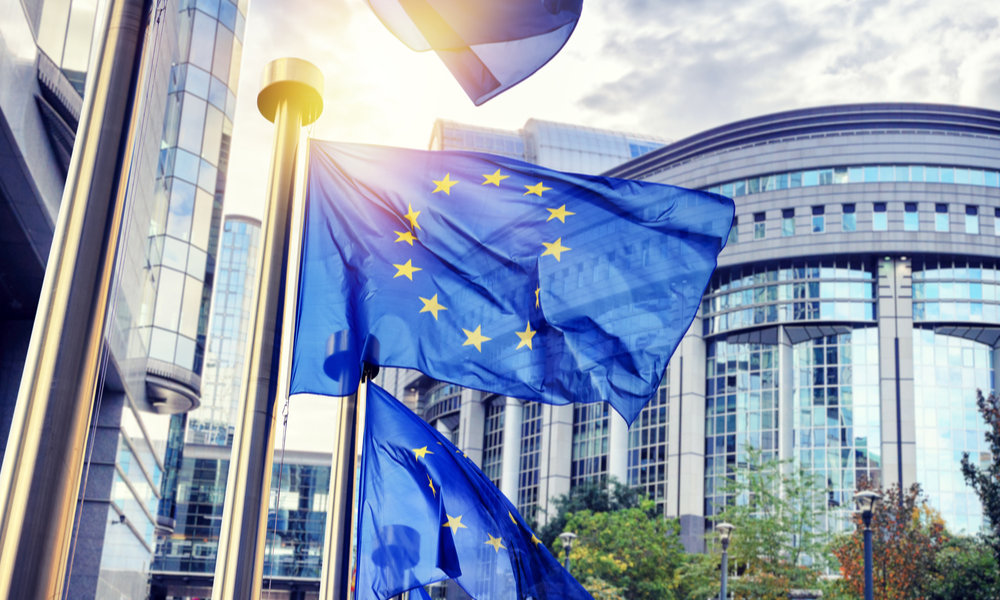Apple Is Looking to Europe for Its Next Lineup of Apple TV+ Shows and Films
 Credit: symbiot / Shutterstock
Credit: symbiot / Shutterstock
Toggle Dark Mode
Apple has been working on producing content for its new Apple TV+ series for over two years now, but despite sometimes reaching out for inspiration from foreign sources, most of its content has been produced in the U.S., and appears to be targeted primarily at a U.S. viewing audience.
However, it looks like Apple is going to have to stretch its legs a bit if it wants to play nicely with the European Union. According to Variety, new legislation soon expected to be introduced in the EU will require that global streaming services offer at least 30 percent European content in their catalogs by the end of 2020.
The new regulations will impact all of the big streaming services that are available in Europe, from established players like Netflix and Amazon Prime to the new entries like Apple TV+ and Disney+. It’s not yet clear exactly how the EU will assess that 30 percent — by number of hours, number of titles, or level of financial investment — but the European Commission is expected to clarify by the end of this year.
Apple Starting From Behind
Right now, Netflix and Amazon Prime Video both have a distinct advantage, and may in fact already meet the requirements. Part of this is due to their head start, but part of it is the fact that the EU regulations aren’t about original content produced by those companies, but merely what’s available on their services. Since both offer a large catalog of existing content from many other sources — between 3,000 and 5,000 titles in the European markets — they already have about 20–30 percent European content just by virtue of what’s already there, regardless of where they’re producing their original content.
On the other hand, since Apple TV+ will exclusively carry original content produced by Apple, this means that the tech giant is going to have to ramp up its efforts to actually produce content in Europe. This will mean setting up and backing European studios, as well as finding writers and producers for this content.
According to Variety, however, Apple is already in negotiation to produce at least three European titles, Faceless, a thriller that will be produced by France’s Leonis and Britain’s Artists studio, as well as an as-yet unnamed English-language period series that will also be produced between Britain and France, plus an animated show that’s in development with French film studio Gaumont.
On the other hand, Apple’s relatively small catalog will give it a slight advantage, since the content requirements are being measured by percentage. At least one analyst estimates that Apple TV+ will offer 38 titles in Europe, including movies and seasons of TV shows, however only 6.2 percent of those will actually be produced in Europe, so Apple will still have to increase its European investment if it wants to meet the new quotas.
Even Tougher in France
While the European Commission is set to enforce a 30 percent rule across the board, it looks like France may be planning to add an additional requirement that would force international streaming services to set aside at least 16 percent of their annual revenues in France to be reinvested in local and European content.
The proposed requirement hasn’t yet passed, and isn’t expected to be introduced in the French senate until January, but it’s being heralded as a move to level the playing field for content production in that country, and if the bill passes, could result in streaming services being shut down if they don’t comply, although it’s less clear how France would enforce this.
Global Focus
Compared to many other companies, Apple has always led the way when it comes to rolling out its features and services on a global scale, and Apple TV+ is no exception, with it expected to launch in over 100 countries when it arrives on November 1. By contrast, when Disney’s new streaming service, Disney+, opens its doors less than two weeks later, it will only be available in three countries — U.S., Canada, and the Netherlands — with Australia and New Zealand joining later in the month.
By contrast, Netflix is available in over 190 countries, and Amazon Prime Video now boasts the largest global scale at well over 200 countries, but both of these services took several years to expand beyond the U.S. — they’ve just had a massive head start compared to Apple.
Apple’s global focus, however, means that it has a good incentive beyond simply adhering to EU regulations. Naturally, if Apple wants to attract more subscribers in foreign countries, it needs to begin producing content that will appeal to local audiences.






